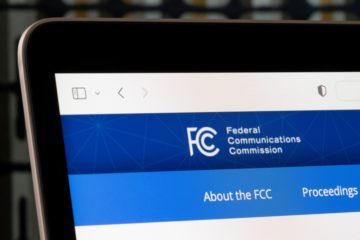In a recent 60 Minutes interview, FTC Chair Lina Khan shared insights into her aggressive approach to antitrust policy. Appointed by President Biden, Khan champions a “neo-Brandeisian” framework that treats business size as inherently problematic—a stark departure from the consumer welfare standard that has guided antitrust policy for decades.
Below is an excerpt from a new article by Market Institute Senior Fellow Norm Singleton, examining how Khan’s “big is bad” philosophy could undermine competition and innovation. This ideological shift has sweeping implications, potentially replacing consumer-focused policies with government oversight that limits market freedom and stifles growth.
“60 Minutes recently aired an interview with Federal Trade Commission (FTC) Chair Lina Khan conducted by veteran reporter Lesley Stahl. This may have been the first time in their 58-year history that 60 Minutes has profiled an FTC chair, but Lina Khan is not the “typical” FTC chair.
President Joe Biden picked Lina Khan to head the FTC because she is a (maybe the) leading advocate for “neo-Brandeisians.” Named for former Supreme Court Justice (and progressive icon) Louis Brandeis, this movement seeks to restore the “big is de facto bad” approach that dominated antitrust from the passage of the first antitrust laws in the 1890s until the Ronald Reagan administration. The “big is de facto bad” approach was displaced by the consumer welfare standard, which focuses on how businesses’ actions affect consumers.
Stahl questioned Khan about concerns that when government prevents companies from merging, they deprive them of the ability to use economies of scale to lower prices. Khan said, “Even if those efficiencies arise, if the companies are not checked by competition, it won’t have an incentive to pass those benefits on to the consumer because those consumers may not have anywhere else to go.” Khan and her progressive allies fail to consider the history of businesses that believed their position as leader of the market was so untouchable that they could abuse their customers with high prices, poor customer service, and a refusal to adapt to compete with new and innovative competitors.
An example of a seemingly untouchable market leader that failed to “keep up with the times” is Borders Books. Borders’ failure to see the potential in online retail caused the company to lose many customers (and eventually go bankrupt) to an online book retailer that started as one man selling books in a rented warehouse. That company was Amazon.
Khan acknowledged concerns that her aggressive approach to antitrust could make companies reluctant to engage in beneficial mergers or acquisitions because they fear that the time and money they will have to spend justifying the merger to the government will make the transaction unprofitable. However, Khan says those concerns must be balanced by the risk that businesses could grow so big and act so recklessly they could crash the entire economy. This concern ignores the fact that the only case of big business recklessness causing an economy wide meltdown was the subprime crisis of 2007-2008, which was the result of government intervention in the housing market, not “unbridled capitalism.”
The FTC’s successful efforts to lower prescription drug prices is an example of the agency “fixing” a problem caused by government intervention. The FTC lowered prices of prescription drugs by challenging patents filed by companies whose sole purpose was to keep generic alternatives off the market—thus enabling the big pharmaceutical companies to keep prices high. So, the pharmaceutical companies were not abusing market power to keep prices high. they were manipulating the legal and regulatory process.
Khan’s use of antitrust to launch a crusade against a variety of big businesses, with a particular focus on Big Tech, has made her a divisive figure. Khan is a rock star among progressives Democrats. However, some of Kamala Harris’s big donors, who understand the effects Khan’s policies have on the economy, have publicly called for Harris to replace Khan if she wins the presidency. Kahn’s rejection of the consumer welfare standard has also been criticized by “neo liberals” like former Clinton Treasury Secretary Larry Summers.
It is no surprise that free-market conservatives and libertarians have been ‘critical of many of Lina Khan’s actions. On the other hand, many populist conservatives (or “Khanservatives”) see Khan as a role model. The Khanservatives want Republicans to take a Khan-like approach to antitrust to punish companies—particularly Big Tech companies—for censoring conservative news and opinions, or for promoting left-wing “woke” policies.”


